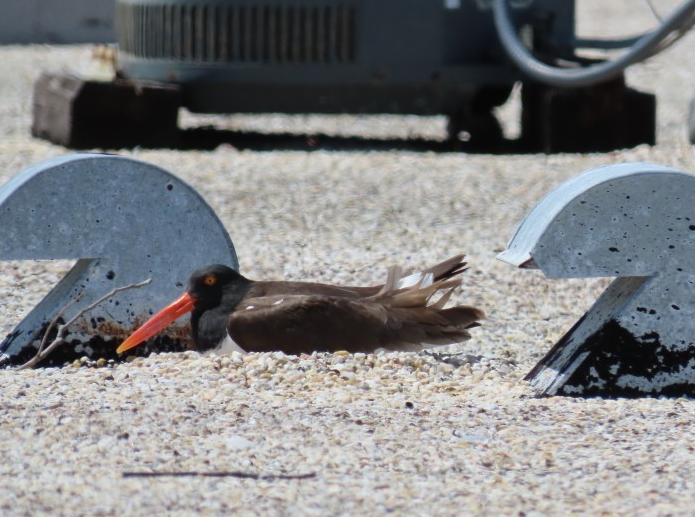 Press Release
Press Release
April 27, 2022
With shorebird and seabird nesting season underway, the Florida Fish and Wildlife Conservation Commission (FWC) thanks building owners for hosting species such as black skimmers, least terns, roseate terns and American oystercatchers that nest on their roofs from March through August.
Shorebirds and seabirds typically nest directly on beaches along Florida’s coasts, however, as our shorelines become more crowded with people, less nesting space is available and birds increasingly use gravel rooftops to nest and raise chicks. Most shorebirds and seabirds that nest on rooftops are state-Threatened species, such as black skimmers and least terns. Currently more than 50% of Florida’s least tern population relies upon rooftops for nesting.
Nesting season for shorebirds and seabirds takes place in Florida between March and August. For buildings that have shorebirds nesting on rooftops, it is recommended that routine maintenance and nonemergency repairs be conducted outside of nesting season, between September and February. If unexpected repairs are required during the nesting season, building owners can work with the FWC’s regional shorebird biologists to determine if take could occur and how to apply if a permit is needed.

What can you do to help rooftop nesting shorebirds?
Thank building owners that host rooftop nesting birds. If you are staying at a hotel or visiting a business that has rooftop nesting birds, thank management and staff for helping shorebird and seabird conservation.
Volunteer. You can help the FWC monitor rooftop nesting locations. Contact us for opportunities in your area by emailing: [email protected].
Building owners and managers play an important role. If you own or manage a building where shorebirds or seabirds are nesting on the roof, you can help by giving the nesting birds space and coordinating with your FWC Regional Shorebird Biologist . To find a regional shorebird biologist near you, go to MyFWC.com/Shorebirds and click on “Shorebird Nest Dates and Contacts.”
For more information, go to MyFWC.com/Shorebirds and click on “Rooftop Nesting.”
Spring is an active time for many of Florida’s wildlife species. For more information on wildlife in Spring, visit MyFWC.com/News and click on “Spring Wildlife News.”

Thanks to all who are working to protect our nesting shorebirds. Please keeps dogs off of all state park beaches (it’s the law), and on other beaches leashed up and away from dune areas where birds are nesting. Thank you!